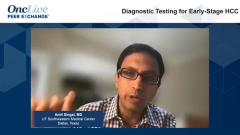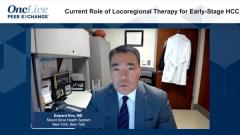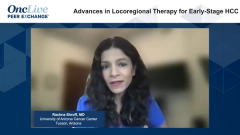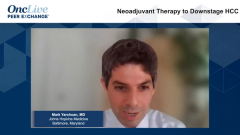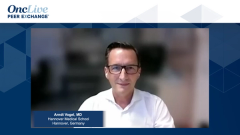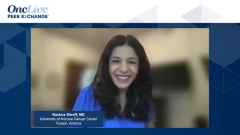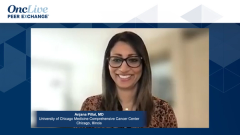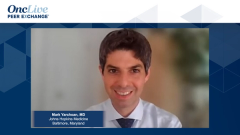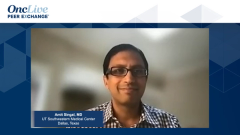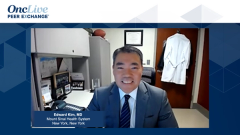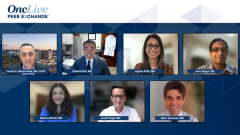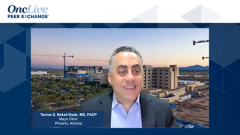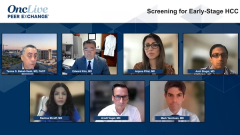
Frontline IO for Advanced HCC
Considerations regarding the use of nivolumab as frontline treatment for advanced hepatocellular carcinoma.
Episodes in this series

Tanios S. Bekaii-Saab, MD, FACP: Mark, I want to go back to you very quickly on your thoughts. We have a negative study with nivolumab in the first line, and a positive study with a combo. We’ve heard the suggestion that we need to essentially remove nivolumab from the FDA-accelerated approval, while there was an endorsement for pembrolizumab, which doesn’t make any sense. You either get rid of both, or you keep both. Is there any role for nivolumab monotherapy in the frontline setting or for your patients?
Mark Yarchoan, MD: The CheckMate-459 study is technically a negative study. We can be more nuanced than saying a study is positive or negative. The data are the data. When we look at it, it’s very well tolerated, and it doesn’t appear to be significantly worse than sorafenib, if we look at the data. The survival curves and progression-free survival curves are pretty similar. This is a drug that has activity, seems to be pretty safe, and there is a group of patients who does well on it. It’s not something that I would reach for, for many of my patients. But when you have patients who really cannot receive an anti-VEGF agent, so patients who really have severe bleeding, or Child-Pugh B patients, or even Child-Pugh C in some very rare cases, there may be some role for checkpoint monotherapy in the front line. As we know, all the big trials done in HCC [hepatocellular carcinoma] are restricted to Child-Pugh A populations, so we really don’t have a lot of data in Child-Pugh B, but there are prospective data for nivolumab in that group. It seems to be pretty safe, and some patients respond. Sometimes, when I have a Child-Pugh B8 or B9, where I’m really concerned that they may not tolerate very much, or a marginal performance status, it’s something that I reach for sometimes.
Tanios S. Bekaii-Saab, MD, FACP: Arndt, I want to hear the European perspective on this, keep the Americans in check.
Arndt Vogel, MD: I think the problem is we do not have the FDA, see, we have EMA [European Medicines Agency], and they are really tough. We couldn’t use immunotherapy [IO] for MSI [microsatellite instability] in colon cancer for many years. It was always a fight. It’s just common here. There’s no approval for nivolumab or pembrolizumab as monotherapy in HCC, and actually, we do not get any reimbursement. It’s impossible. If I would have access, the question is who would be a candidate for that? I think atezolizumab plus bevacizumab is clearly the first choice if you have a contraindication with IO, so nivolumab or pembrolizumab would not be OK. For the bleeding, I’m not 100% sure whether these patients might also be candidates for lenvatinib, and whether we really need to use IO in the first-line setting, or whether it might be an option for the second line or third line. We have never really had the chance to test it so much. I do remember we had a small time frame of a couple of months when we were able to use it. I have seen nice responses, complete responses with pembrolizumab monotherapy, so I think we are convinced that it has activity in some patients. But we need a biomarker.
Tanios S. Bekaii-Saab, MD, FACP: That’s one of the limiting factors.
Transcript Edited for Clarity


